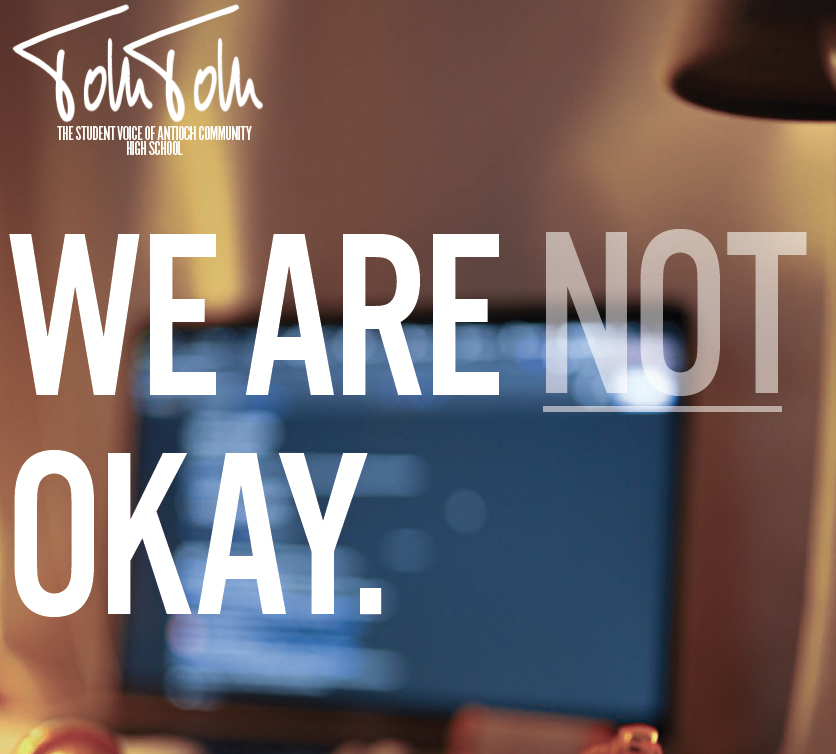Being a teenager means facing pressure almost every day. From school becoming more difficult to gaining and losing friends, life as a teenager has its ups and downs. Making decisions about one’s life and how to live it is daunting for many. As a result, some teenagers simply follow their peers and make decisions based on what others are doing, even if those choices are not beneficial.
“I think that a lot of people do follow the stereotype of going out partying and doing things you’re not supposed to be doing,” sophomore Juulius W. Eenie, whose name has been changed in fear of losing street cred, said. “I think that a lot of teens like to conform to what they think is normal.”
Peer pressure is a concept that teens have known about for a long time due to health classes and parents. While teens are aware of it, they are not always able to escape from the power that peer pressure holds. According to a survey done by Parent Further, only 10 percent of the surveyed teens said that they were able to say no to peer pressure. This low number can explain why some teenagers party, date or drink; this, in essence, could be described as the stereotypical “teenage dream”; however, not every teenager wants to live that kind of life. Junior Madison Maish has a different teenage dream, and she is satisfied with her life choices.
“I do not live that kind of life at all,” Maish said. “The partying, the drinking, smoking weed… I just don’t think that there’s a need for it, especially when you’re only 16 years old.”
While it may seem like a lot of teenagers live a more spontaneous life, that is not necessarily true. Maish said that when she was an underclassman in high school, she felt a lot of pressure to grow up and be like her peers. However, now that she is in her junior year, she feels as though her past way of thinking was flawed.
“In freshman and sophomore year, I was kind of like, this is the point where I’m supposed to be doing spontaneous things. I would think, ‘Madison, be normal,’” Maish said. “But then, I realized… that’s not me, and it’s also not a lot of other people, too.”
Throughout one’s high school experience, they are going to experience new things that will guide them into figuring out what kind of life they want to live. While some like Maish realize that they simply do not want to live the typical teenage life, others are not allowed to live it at all. Several factors can cause this, such as strict parents, culture, or their own insecurities. Sophomore Ravyn Edran believes that her culture has had an impact on her life as a teenager.
“It’s partially a culture thing. It’s not common for us as Filipinos to do that sort of thing, [like party],” Edran said. “We’re more like, ‘study study study’, and doing your work first before you have fun.”
Along with culture, familial values can influence the decisions that one makes and how someone lives. Both culture and her parents are key factors as to why Edran does not live the typical teenage dream.
“My parents are very conservative and cautious, and that kind of rubs off on me,” Edran said. “I was raised with the fear of making a mistake that could have a drastic impact on my future.”
Edran’s fear of making mistakes can also explain why some teenagers do not comply with the stereotypical teenage dream. Fear and anxiety in one’s self and their future can keep them from pursuing a different lifestyle. Maish believes that some of her own anxiety is another factor as to why she does not live the teenage dream.
“I would say that I’m a very anxious person, so new things scare me,” Maish said. “I think that also solidifies [the tendency of] me not trying new things.”
Trying new things is a large component of the teenage dream, and some teens choose not to take risks. While some believe that avoiding risks is the best way to prevent dangerous situations, there is still danger involved when one never tries new things. According to Elizabeth Donovan of Psychology Today, teenagers need to take risks in order to grow and develop their brains and personality.
“Risk-taking and rule-breaking are linked to developmental changes in the brain that serve to help teens become healthy, analytical adults,” Donovan wrote. “Thus, a certain amount of positive risk-taking is necessary for adolescents to fulfill their universal need for independence, developing a separate identity, and testing authority.”
Along with personal and neurological development, there are other benefits to living the typical teenage life. While the most obvious could be having fun with friends or popularity, Maish believes that living the teenage dream can allow people to make mistakes and learn from them.
“A benefit could be that maybe something really traumatic will happen,” Maish said. “And then you’ll be like, ‘Oh, I shouldn’t do that in college,’ you know? So you’re learning your lesson early.”
Another aspect of the teenage dream that can be beneficial is dating. According to the U.S. Department of Health and Human Services, dating is a way to develop social skills, grow emotionally, and learn about how to have healthy relationships with other people. Eenie agrees that dating can be beneficial; however, he believes that it can be detrimental as well.
“Through dating, you get this sense of what to do and what not to do later on in life,” Eenie said. “But it also comes with [the risk of] getting seriously hurt emotionally or mentally.”
Even though there are benefits to living the teenage dream, there are also risks, which is why some teenagers choose to not live the so-called “normal” teen life. Choosing to not conform to the teenage dream can lead to happiness for some; however, in other cases, those who choose to not live the teenage dream can find themselves wanting more out of life. Edran, while she is satisfied with her life choices, sometimes finds herself wanting to experience more things.
“I would like the freedom to make my own decisions about more things, like going to certain events such as school dances,” Edran said. “I just wish it was more of like a personal choice rather than my parents saying, ‘don’t do this yet.’”
Wanting more out of life is common for teenagers. According to Psychology Today, young adults are often unsure about their identity, and they are searching for answers to the complex question: who am I? Not knowing your identity can cause teenagers to want to conform with their peers, meaning that they want to live the teenage dream. While living the teenage dream is not necessarily bad, one does not have to live that kind of life to be happy. Teenagers should simply follow their own path, and create their own teenage dream. People, in general, should not feel pressured to live their life exactly like others do.
“I don’t think everyone needs to live the stereotypical teenage dream,” Eenie said. “I don’t think you need to live it to be happy. I think you can make happiness whenever or wherever you find it.”
















![The Black Lives Matter movement has become a growing trend in recent years. "Everything people post on Instagram and everything [related to] politics is a trend now" sophomore Kelsey Aviles said. Despite how serious of a topic it is, some individuals post about BLM specifically because it is trendy.](https://www.sequoitmedia.com/wp-content/uploads/2020/12/Untitled-Artwork-3-900x318.jpg)





